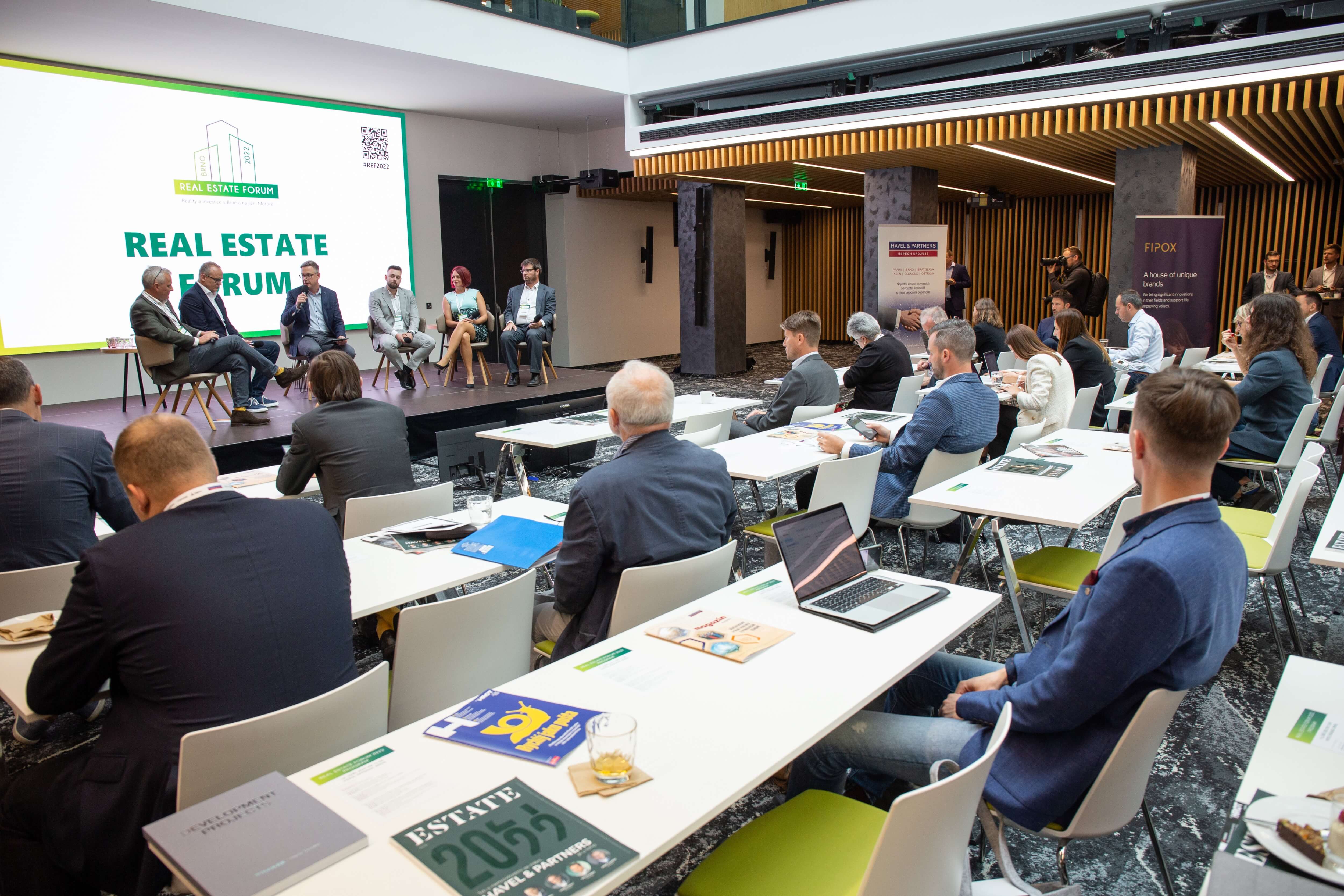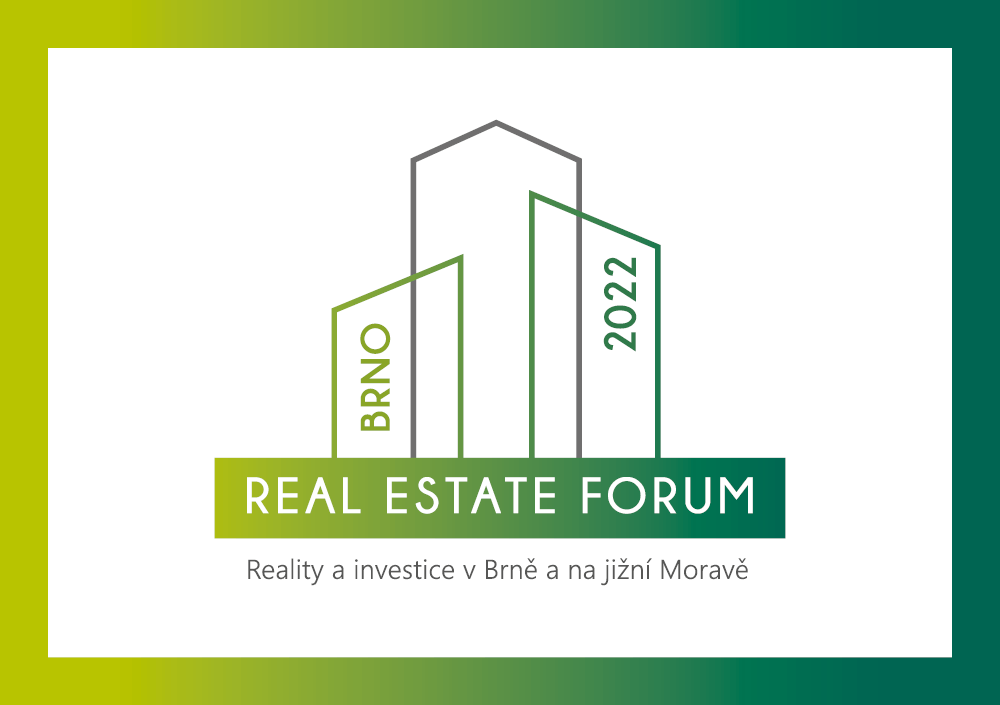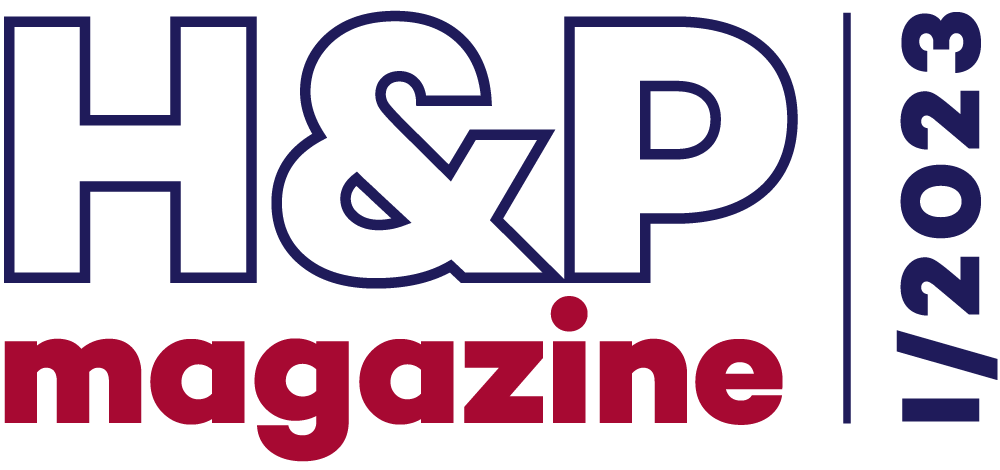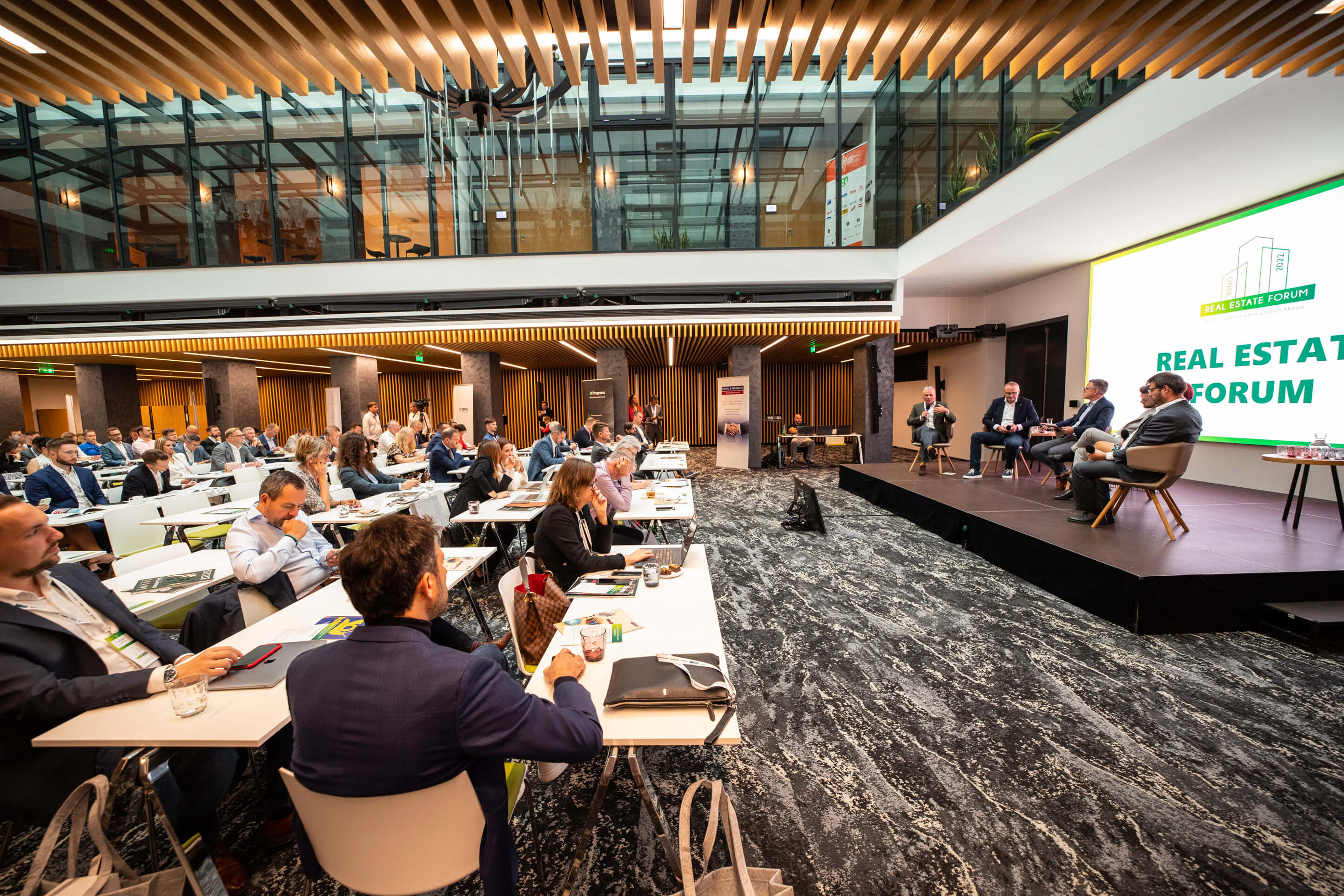The real estate market has been coping with significant changes in recent months, dictated mainly by high interest rates and the energy crisis. The big topics for developers are therefore financing, sustainability, and digitisation. Representatives of developers, consultants, architects and other experts in the real estate market discussed these topics at the Real Estate Forum, the largest South Moravian real estate conference held in Brno, organised by HAVEL & PARTNERS.
The real estate market has cooled down. Loans are expensive, and that is why there are fewer investors who buy property on mortgage. “Standard large projects draw 50% of mortgage buyers, but they have disappeared, and apartments are being bought by people who have cash,” said Dušan Dvořák, founder of TOP Estates, at the Real Estate Forum conference.
However, people are still interested in investment apartments intended for rent. Because of expensive mortgages, the demand for rental housing is increasing. Rents are rising not only for apartments but also for offices. “Ten years ago, the highest rent in the centre of Brno was EUR 12.50 per sqm, today it is EUR 16.50,” said Lukáš Netolický, partner and head of the regional representation of Cushman & Wakefield. In a few years, according to him, the rent for offices in premium projects could reach a price of around EUR 20.
Analyses and digitisation
According to experts, digitisation and automation are the future of the construction industry. As they also said at the Real Estate Forum, without a stock of data and its sophisticated analysis, no development or construction company can stay on top today. “Today, data can change over days, or weeks. Energy prices, central bank interventions... You need to be on the cutting edge of information technology to be able to maintain your strategy and not make mistakes,” warned Martin Skalický, chairman of the Progresus consulting team.
Developers are also helped by new technologies and digitisation. Modern projects work with the Building Information Model, a computer model of the real building in 3D. Thanks to this, it is possible to continuously monitor the design, construction and operation, and thus to have an accurate idea of the costs. “Today, digitisation is a fundamental means for optimising costs and getting quality buildings,” said Petr Vašina, partner and CEO of Siebert & Talaš.
Digitisation could also make construction management significantly easier in the future. At present, it is still necessary to run around to different authorities with paper documents and get stamps on them. The new Building Act envisages that everything can be done conveniently online. The Ministry of Regional Development is expected to launch the digitisation of building procedures on 1 January 2024. “Building authorities and all other authorities will work with a single, mutually accessible electronic original. This will fundamentally simplify the exchange of data and speed up building permitting in the Czech Republic,” described František Korbel, partner at HAVEL & PARTNERS.
Green buildings
Properties that provide a lower utility bill are also increasingly in demand today. This was confirmed by Miroslav Pekník, director of the Nová Zbrojovka project, “First and foremost, the client is interested in how much he will pay for energy in total. They’re after savings. So they are interested in the envelope, how the house can keep warm or cool.”
Therefore, with an energy crisis at hand, the pressure on energy self-sufficiency and building sustainability is growing. This is also crucial for companies committed to reducing their carbon footprint. Developers are therefore trying to think about construction differently than before. They combine resources, they build with recycled materials. Buildings have green roofs, work with rainwater and use new technologies that make the buildings smart and save energy. This is creating a whole new standard for buildings, and banks are now offering more favourable financing for green projects.
“The construction industry is the largest contributor to carbon emissions globally. If we can get sustainability and sustainable principles into construction and reduce the carbon footprint, it will have the biggest impact globally,” admitted Lukáš Jiříček, senior advisor at One Advisory.

(On the dais from left) Dušan Dvořák (TOP Estates), Pavel Rydzyk (YD Capital), Jiří Václavek (moderator), Lukáš Netolický (Cushman & Wakefield), Zdeněk Vojtek (SVOBODA & WILLIAMS), Josef Šilhánek (DRFG Real Estate)

(Facing away) Dušan Dvořák (TOP Estates), (From left) Pavel Rydzyk (YD Capital), Jiří Václavek (moderator), Lukáš Netolický (Cushman & Wakefield), Zdeněk Vojtek (SVOBODA & WILLIAMS)

(On the dais from left) Martin Skalický (Progresus), Marcel Soural (Trigema), Jiří Václavek (moderator), Václav Stehno (THIERRA), Zlata Botero Vašková (sousedé.cz), Petr Vašina (Siebert & Talas)








